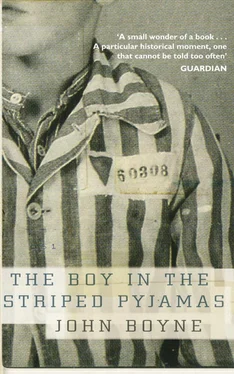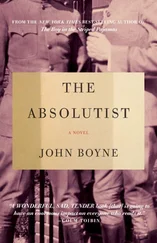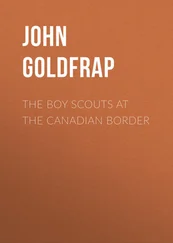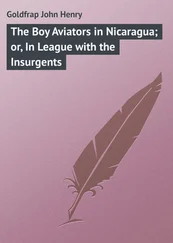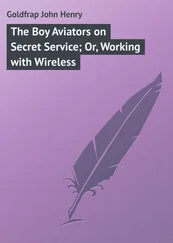Maria sighed and looked out of the window to make sure that no one was coming, then nodded towards the chairs and both she and Bruno sat down.
‘If I tell you what Pavel told me about his life,’ she said, ‘you mustn’t tell anyone-do you understand? We would all get in terrible trouble.’
I won’t tell anyone,’ said Bruno, who loved to hear secrets and almost never spread them around, except when it was totally necessary of course, and there was nothing he could do about it.
‘All right,’ said Maria. ‘This is as much as I know.’
Bruno was late arriving at the place in the fence where he met Shmuel every day, but as usual his new friend was sitting cross-legged on the ground waiting for him.
‘I’m sorry I’m late,’ he said, handing some of the bread and cheese through the wire-the bits that he hadn’t already eaten on the way when he had grown a little peckish after all. ‘I was talking to Maria.’
‘Who’s Maria?’ asked Shmuel, not looking up as he gobbled down the food hungrily.
‘She’s our maid,’ explained Bruno. ‘She’s very nice although Father says she’s overpaid. But she was telling me about this man Pavel who chops our vegetables for us and waits on table. I think he lives on your side of the fence.’
Shmuel looked up for a moment and stopped eating. ‘On my side?’ he asked.
‘Yes. Do you know him? He’s very old and has a white jacket that he wears when he’s serving dinner. You’ve probably seen him.’
‘No,’ said Shmuel, shaking his head. ‘I don’t know him.’
‘But you must,’ said Bruno irritably, as if Shmuel were being deliberately difficult. ‘He’s not as tall as some adults and he has grey hair and stoops over a little.’
‘I don’t think you realize just how many people live on this side of the fence,’ said Shmuel. ‘There are thousands of us.’
‘But this one’s name is Pavel,’ insisted Bruno. ‘When I fell off my swing he cleaned out the cut so it didn’t get infected and put a bandage on my leg. Anyway, the reason I wanted to tell you about him is because he’s from Poland too. Like you.’
‘Most of us here are from Poland,’ said Shmuel.
‘Although there are some from other places too, like Czechoslovakia and-’
‘Yes, but that’s why I thought you might know him. Anyway, he was a doctor in his home town before he came here but he’s not allowed to be a doctor any more and if Father had known that he had cleaned my knee when I hurt myself then there would have been trouble.’
‘The soldiers don’t normally like people getting better,’ said Shmuel, swallowing the last piece of bread. ‘It usually works the other way round.’
Bruno nodded, even though he didn’t quite know what Shmuel meant, and gazed up into the sky. After a few moments he looked through the wire and asked another question that had been preying on his mind.
‘Do you know what you want to be when you grow up?’ he asked.
‘Yes,’ said Shmuel. ‘I want to work in a zoo.’
‘A zoo?’ asked Bruno.
‘I like animals,’ said Shmuel quietly.
‘I’m going to be a soldier,’ said Bruno in a determined voice. ‘Like Father.’
‘I wouldn’t like to be a soldier,’ said Shmuel.
I don’t mean one like Lieutenant Kotler,’ said Bruno quickly. ‘Not one who strides around as if he owns the place and laughs with your sister and whispers with your mother. I don’t think he’s a good soldier at all. I mean one like Father. One of the good soldiers.’
‘There aren’t any good soldiers,’ said Shmuel.
‘Of course there are,’ said Bruno.
‘Who?’
‘Well, Father, for one,’ said Bruno. ‘That’s why he has such an impressive uniform and why everyone calls him Commandant and does whatever he says. The Fury has big things in mind for him because he’s such a good soldier.’
‘There aren’t any good soldiers,’ repeated Shmuel.
‘Except Father,’ repeated Bruno, who was hoping that Shmuel wouldn’t say that again because he didn’t want to have to argue with him. After all, he was the only friend he had here at Out-With. But Father was Father, and Bruno didn’t think it was right for someone to say something bad about him.
Both boys stayed very quiet for a few minutes, neither one wanting to say anything he might regret.
‘You don’t know what it’s like here,’ said Shmuel eventually in a low voice, his words barely carrying across to Bruno.
‘You don’t have any sisters, do you?’ asked Bruno quickly, pretending he hadn’t heard that because then he wouldn’t have to answer.
‘No,’ said Shmuel, shaking his head.
‘You’re lucky,’ said Bruno. ‘Gretel’s only twelve and she thinks she knows everything but she’s a
Hopeless Case really. She sits looking out of her window and when she sees Lieutenant Kotler coming she runs downstairs into the hallway and pretends that she was there all along. The other day I caught her doing it and when he came in she jumped and said, Why, Lieutenant Kotler, I didn’t know you were here, and I know for a fact that she was waiting for him.’
Bruno hadn’t been looking at Shmuel as he said all that, but when he looked again he noticed that his friend had grown even more pale than usual.
‘What’s wrong?’ he asked. ‘You look as if you’re about to be sick.’
‘I don’t like talking about him,’ said Shmuel.
‘About who?’ asked Bruno.
‘Lieutenant Kotler. He scares me.’
‘He scares me too a little,’ admitted Bruno. ‘He’s a bully. And he smells funny. It’s all that cologne he puts on.’ And then Shmuel started to shiver slightly and Bruno looked around, as if he could see rather than feel whether it was cold or not. ‘What’s the matter?’ he asked. ‘It’s not that cold, is it? You should have brought a jumper, you know. The evenings are getting chillier.’
Later that evening Bruno was disappointed to find that Lieutenant Kotler was joining him, Mother, Father and Gretel for dinner. Pavel was wearing his white jacket as usual and served them as they ate.
Bruno watched Pavel as he went around the table and found that he felt sad whenever he looked at him. He wondered whether the white jacket he wore as a waiter was the same as the white jacket he had worn before as a doctor. As he brought the plates in and set them down in front of each of them, and while they ate their food and talked, he stepped back towards the wall and held himself perfectly still, neither looking ahead nor not. It was as if his body had gone to sleep standing up and with his eyes open.
Whenever anyone needed anything, Pavel would bring it immediately, but the more Bruno watched him the more he was sure that catastrophe was going to strike. He seemed to grow smaller and smaller each week, if such a thing were possible, and the colour that should have been in his cheeks had drained almost entirely away. His eyes appeared heavy with tears and Bruno thought that one good blink might bring on a torrent.
When Pavel came in with the plates, Bruno couldn’t help but notice that his hands were shaking slightly under the weight of them. And when he stepped back to his usual position he seemed to sway on his feet and had to press a hand against the wall to steady himself. Mother had to ask twice for her extra helping of soup before he heard her, and he let the bottle of wine empty without having opened another one in time to fill Father’s glass.
‘Herr Liszt won’t let us read poetry or plays,’ complained Bruno during the main course. As they had company for dinner, the family were dressed formally-Father in his uniform, Mother in a green dress that set off her eyes, and Gretel and Bruno in the clothes they wore to church when they lived in Berlin. ‘I asked him if we could read them just one day a week but he said no, not while he was in charge of our education.’
Читать дальше
